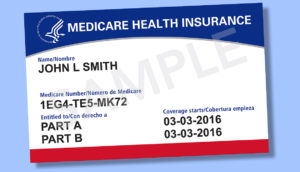Dear Liz: A family member is 90 and lives by herself at home. She has around-the-clock caregivers paid for by her investment accounts. Her teacher pension pays for all everyday expenses. She is high maintenance and unwilling to accept she will one day run out of money for caregivers. What would you suggest?
Answer: That depends on how much money she has, and why you’re asking.
In-home, round-the-clock care can be mind-bogglingly expensive. The median cost nationally for 24/7 at-home caretaking was about $24,000 a month in 2023, according to Genworth’s latest “Cost of Care” survey. By contrast, the median cost for a private room in a nursing home was closer to $10,000 a month.
Not many people could pay for around-the-clock care for long, but your relative may be one of the exceptions. If she has enough savings to pay for care for a few years, then perhaps she’s making the calculated gamble that she’ll run out of breath before she runs out of cash. (And if she’s the suspicious type, she may be convinced your concern is more for your potential inheritance than her well-being.)
Once her resources are depleted, though, her situation could become pretty bleak. Her income may be too high to qualify for Medicaid, the government program that otherwise might pay for nursing home care. (In California, the program is known as Medi-Cal.) Perhaps her home could be sold to pay her care. If not, she might have to turn to relatives for financial help.
If you’re one of the relatives she would turn to, then you can certainly let her know how much help you could afford to give her, if any. But first, suggest a session with an elder law attorney who can review her situation, calculate how long her resources might last and offer suggestions for managing her care bills. She may be more willing to listen to a professional third party than to her family. You can get referrals from the National Academy of Elder Law Attorneys at www.naela.org.
 This week’s top story: How to get into college without applying. In other news: Solar panels in Ohio, project 2025 calls for big changes to Medicare, Medicaid, and 5 ways to practice financial self-care.
This week’s top story: How to get into college without applying. In other news: Solar panels in Ohio, project 2025 calls for big changes to Medicare, Medicaid, and 5 ways to practice financial self-care. Today’s top story: Understanding the differences between Medicare and Medicaid. Also in the news: How hungry college students can get help, Robinhood takes another shot at cash management accounts, and a new scam that asks for your bank PIN on the phone.
Today’s top story: Understanding the differences between Medicare and Medicaid. Also in the news: How hungry college students can get help, Robinhood takes another shot at cash management accounts, and a new scam that asks for your bank PIN on the phone.